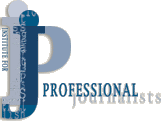Fourth Forum of the Arab Women’s Summit — “Arab Women & The Media”, February 1-3, 2002 - Abu Dhabi
Globalization of the Media: A Bicultural Woman’s View
— by Magda Abu-Fadil
2. The gender problem:
On the gender front, an Arab woman journalist may be lucky to cover the same news as a man, but she can’t expect the same pay. Why?
“There’s a ceiling women can’t penetrate in media and government,” says May Kahale, a veteran journalist and media adviser to former Lebanese president Elias Hrawi.
Mona Ziade, news editor at The Daily Star in Lebanon, notes that women’s coverage of politics and other “serious issues” is fairly recent and continues to raise male suspicions.
Which is why women have to strive harder to prove themselves and abide by very professional standards to be taken seriously, and be respected.
According to Dr. Mohammad Ibrahim Ayesh of Sharjah University, the chances of Arab women in the media are still limited compared to men and the lack of opportunities for professional growth is a major depressant they face in media organizations.
He attributed this to traditional stereotyping of women in the media as consumers only concerned with beauty and fashion and lacking the ability to think and make decisions.
Another obstacle is that media work requires flexible hours and mobility, which often conflicts with the responsibilities of married women, who have children and homes, he added.
Why don’t we have stories of women who have succeeded in this field highlighted in our own media? Why don’t we make them available to foreign media in their own languages? It doesn’t take genius, just a bit of effort.
I spent many years covering the Pentagon (in addition to the White House, State Department and Congress) and enjoyed writing on defense and security issues, focusing on weapons, rapid deployment forces, low intensity warfare, terrorism and nuclear proliferation.
Mastery of languages is very important. It’s helped me in many situations. Reading Farsi (with my command of Arabic) helped me cover stories in Tehran; knowing Greek enabled me to decipher the Cyrillic alphabet while on assignment in Moscow and while living in Cyprus; and being fluent in French has served me in many locations, like North Africa and elsewhere. Thinking and speaking in English’s many variations is my strength.
If women are to prove themselves in the field — and many have excelled over the years — they should do their homework, and more. They should keep pushing that executive glass ceiling by being experts in areas not considered “women’s issues.”

